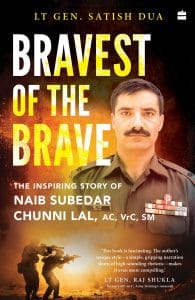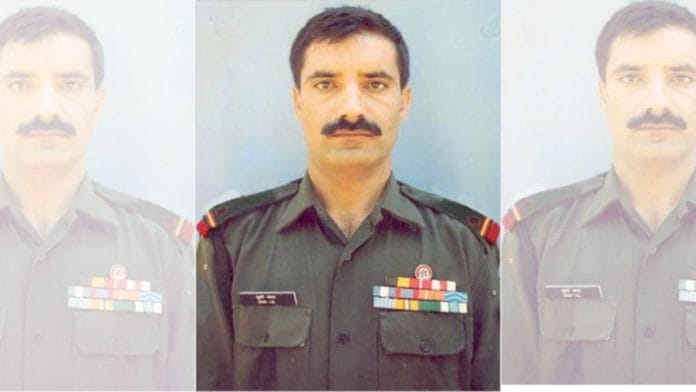It was a cold winter morning. January is always very cold in Delhi. But it was a vibrant day, full of energy. It was the morning of Republic Day in the year 2008. At Rajpath (now renovated and called Kartavya Path), the crowds were braving the cold, waiting for the Republic Day Parade to start.
Suddenly, the clip-clop of horses’ hooves was heard over the buzz of conversations and announcements over the public address system. It was the President’s Bodyguard escorting the President towards the dais. President Pratibha Patil was not alone. President Nicolas Sarkozy of France, who was the chief guest, accompanied the President of India. They were received by the Prime Minister, the Defence Minister, the Chiefs of the Indian Army, Navy and Air Force and the Defence Secretary.
The President’s Bodyguard troop saluted in the ceremonial cavalry style as they took leave. It was an impressive sight. The two Presidents mounted the steps leading to the dais escorted by others, as the announcer could be heard announcing the arrival of the two Presidents. As soon as the dignitaries were seated, the first activity—honouring the Bravehearts, including those who had made the supreme sacrifice in the service of the nation—began.
The announcer read out, ‘Naib Subedar Chunni Lal, Vir Chakra, Sena Medal, Jammu and Kashmir Light Infantry (Posthumous).’
She paused. The cameras focused on his widow, Smt. Chinta Devi. She was escorted by the CO of the unit, Colonel (Col) R.P. Singh. They both started walking up the steps of the dais. The cameras also focused briefly on her children, one boy and two girls, who were seated in the VIP stands.
The announcer continued, ‘On 24th June 2007, Naib Subedar Chunni Lal, Vir Chakra, Sena Medal, was deployed on the Line of Control in Kashmir. He received information about a group of infiltrating terrorists—’
As the Colonel and the soldier’s widow reached the dais, the President stood up and folded her hands. Srimati Chinta Devi also folded her hands, and Nb Sub. Chunni Lal’s CO saluted. Everyone fell silent. It was a sombre moment.
The announcer was reading the citation:
… Realizing the likelihood of terrorists’ escape and threat to the ‘lives’? of soldiers, Naib Subedar Chunni Lal, Vir Chakra, Sena Medal, in a death-defying act, charged at the terrorists, killing one of them instantly and surprising the rest. He also evacuated two of his wounded comrades, thus saving their lives. Fierce exchange of fire ensued between him and the terrorists, in which he bravely eliminated two more terrorists.
However, he sustained multiple gunshot wounds. Bleeding profusely, he continued to fire at the terrorists, blocking their escape routes, which ultimately resulted in the elimination of five hardcore terrorists and saving the lives of several soldiers. He, however, succumbed to his wounds on the spot. For displaying unparalleled bravery and supreme sacrifice in the line of duty, Nb Sub. Chunni Lal, Vir Chakra, Sena Medal, is awarded the Ashok Chakra (Posthumous).
Also read: In Siachen freeze, how a Captain kept soldiers warm, motivated—stories, family, Bollywood
Although a difficult thing to achieve in large crowds, there was pin-drop silence, as if no one wanted to miss even a single word. It was overwhelming. It was even more poignant to look at the gaunt face of Smt. Chinta Devi, the widow of the fallen hero. There was not a tear in her eyes, and yet, there wasn’t a dry eye in the crowd.
Hundreds of kilometres to the north, in the remote village of Bhaderwah in J&K, Shanker Dass and his wife, Shakuntla Devi, had tears in their eyes as they watched on television their brave son being awarded the nation’s highest gallantry medal posthumously. Little did they realize that their son had gone into the annals of military history as the most decorated soldier in the Indian Army. No one individual soldier had been awarded these three gallantry medals before—the Ashok Chakra, the Vir Chakra and the Sena Medal.
His mother, with tears in her eyes and a heavy heart, recalled that Chunni was such a quiet child when he was born. He did not cry much and never disturbed her sleep much at night, unlike his younger siblings. He had been rather quiet and unassuming all his life. He let his actions speak louder than his words. Thinking of her eldest son, Chunni, she couldn’t help recalling that whenever she told him to wear better clothes, he would say, ‘Clothes don’t make a man.’ Chunni had very simple habits, she remembered with pride and affection. Oh God, she would never see him again. The stream of tears flowed unceasingly down her cheeks as she sobbed loudly. More than half a year had elapsed since his passing, yet her heart was still full of anguish. It struck her again, as it had many times in the past many months, that she would never see her son again. A mother’s heart felt his absence more than the pride of the medals.
His father’s heart was filled with grief, but it also swelled with pride. Shanker Dass remembered the day when he enrolled into the army. His son had returned home from Doda after getting selected and had informed him with a mixture of pride and simplicity. ‘I am going to become a good soldier,’ he had said. ‘I need your blessings, Father.’
‘Be brave; be a good soldier,’ his father had replied. ‘God bless.’
Shanker also recalled with great pride how brave he had always been. His son’s milestones in the Army stood out in his memory. As a young soldier with less than three years in service, he participated in an attack on enemy troops in the Siachen Glacier, the highest battlefield in the world. He was one of the youngest to be awarded the Sena Medal, the nation’s fourth-highest gallantry award. Several years later, as a Havildar, he participated in several operations on the LoC and was awarded the Vir Chakra, the nation’s third-highest gallantry medal. Shanker’s chest swelled with pride when he saw the photograph of his son receiving the Vir Chakra Medal from the President of India. He became a hero of the village. Even the local Member of the Legislative Assembly (MLA) had sent his greetings through the numberdar of his village.
In 2007, Chunni laid down his life while fighting for the country, exactly twenty years after the operation for which he got the Sena Medal. When his colleagues Suresh and others brought his body home, he was given a hero’s farewell by the villagers and a ceremonial salute by the army. The whole village had turned up. The Rashtriya Rifles Battalion Guard found it difficult to maintain order while acquitting the ceremonial part of the farewell.
Shanker’s eyes brimmed over with tears as he watched the President on television giving the Ashok Chakra medal to his daughter-in-law. Unable to control his grief, he cried out, ‘Oh, my son, Oh my brave son—’ This bereaved father had once said, ‘My one son will do what a hundred other sons put together cannot do.’
Chunni’s family, his relatives and friends all watched the ceremony on television. Many of them came over to Shanker Dass’ home that afternoon. People kept coming and going that afternoon and evening. Everyone felt proud of this son of the soil. They all paid their respects to the Braveheart and to the family. Chunni’s parents were overwhelmed with pride, but it also refreshed the grief.
By the time darkness fell, everyone had left except the family.
Shanker’s younger son Pyara Lal and his children were also quiet. The mood was sombre. There were too many memories. Sitting alone for some time, Shanker reminisced that when Chunni was born nearly four decades ago, they did not live in this house but in Paddar, beyond Kishtwar. That area was very remote and backward. When Chunni was a year old, Shanker moved the family to Bhaderwah, bought some land and settled in Bhara Village, where he built his present abode. Chunni’s siblings, two brothers and four sisters, were born here. Shanker had modest landholdings, but he had brought up his children with good values of honesty and patriotism.
It was a tradition in the villages to send one son to the army, and Shanker had given one brave son to the country who was equal to many. He recalled that after Chunni returned from serving abroad in Sudan, he had asked him to retire and take care of his family.
Chunni’s reply had been that the army was his life and he could not think of any other way to live. In a way, Chunni had fulfilled his own dream.
Neither Shanker nor Shakuntala had much appetite for dinner that day, as their hearts were full. ‘My heart is so full of grief today that I cannot sleep,’ said Chunni’s mother.
‘Yes, you’re right,’ said his father, ‘today’s ceremony in Delhi has opened up old wounds, just when we had learnt to dry our eyes since his passing away last year. But we must also remember that not only our village but also the whole country is saying today that we are the proud parents of a hero who was the braves of the brave. He has attained what no one has. You are the great mother who gave birth to such a hero.’
On the television, the announcer had finished reading out the citation. She announced one more time, ‘Mrs Chinta Devi.’ Their daughter-in-law received the Ashok Chakra and the parchment from the President and folded her hands once again. Colonel R.P. Singh saluted and escorted their daughter-in-law back to her seat, where her children were seated too. She handed over the medal and parchment to her son, who looked at both with awe before handing them over to his sisters seated next to him. His mother held her son’s hand tightly.
No words were exchanged.
The Republic Day Parade started. This was the first time that Chunni’s wife and children were seeing the Parade at the venue. The children soon got engrossed, but Chinta Devi’s mind was far away.
Her thoughts went to the last time she had seen her husband. Then, unbidden, she also recalled the first time she had seen him, when he had come with his parents to fix their wedding. She had felt so shy that she could barely peek through the dupatta that nearly covered her face. Her mind strayed to their wedding, when Chunni had looked so handsome, dressed as a bridegroom.
For some reason, Chunni’s teenage son, Manveer, could not get his mind off a few lines of a battalion song that his father used to hum to him often:
Vir to hum mein char hue,
Ab Param ka chakkar pana hai.
Agla mauka milne par,
Seene pe ise lagana hai.
(Four of our soldiers have so far been awarded the Vir Chakra, Now we have to attain the Param Vir Chakra. On the next possible opportunity, We have to pin it to our chest.)
His father had finally been awarded the peacetime equivalent of the Param Vir Chakra, but at a great price. He could not wait to follow in his footsteps and join the Indian Army, join his father’s ‘Bravest of the Brave Battalion’—8 JAKLI (Siachen).
 This excerpt from Lt Gen Satish Dua’s ‘Bravest of The Brave: The Inspiring Story of Naib Subedar Chunni Lal, Ac, VrC, SM’ has been published with HarperCollins India’s permission.
This excerpt from Lt Gen Satish Dua’s ‘Bravest of The Brave: The Inspiring Story of Naib Subedar Chunni Lal, Ac, VrC, SM’ has been published with HarperCollins India’s permission.






